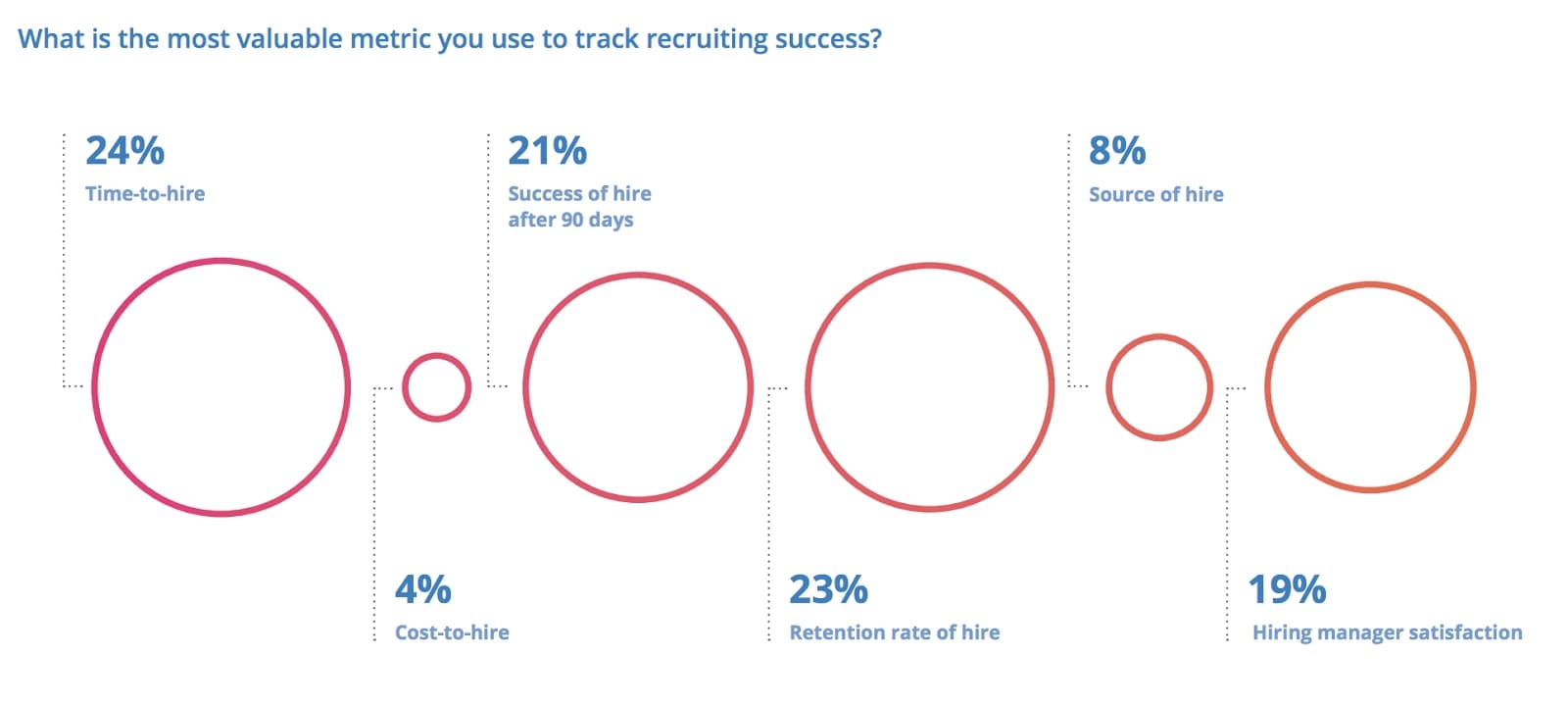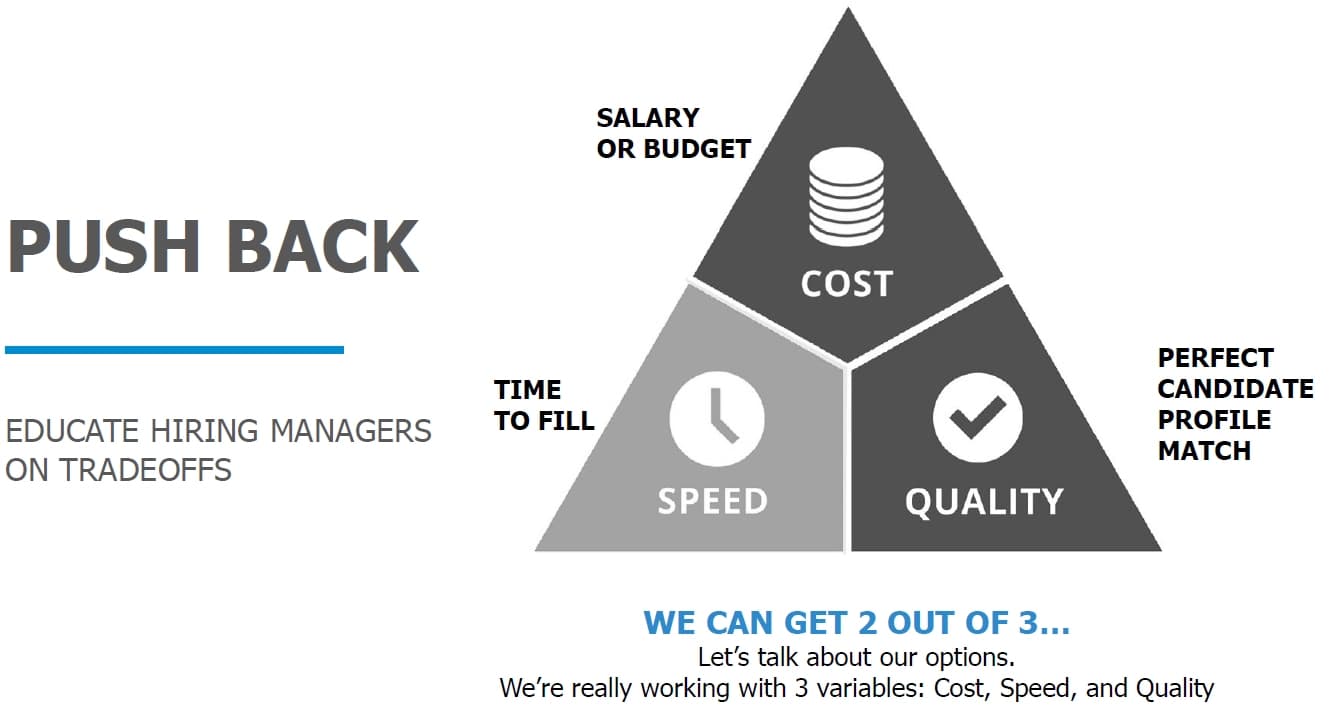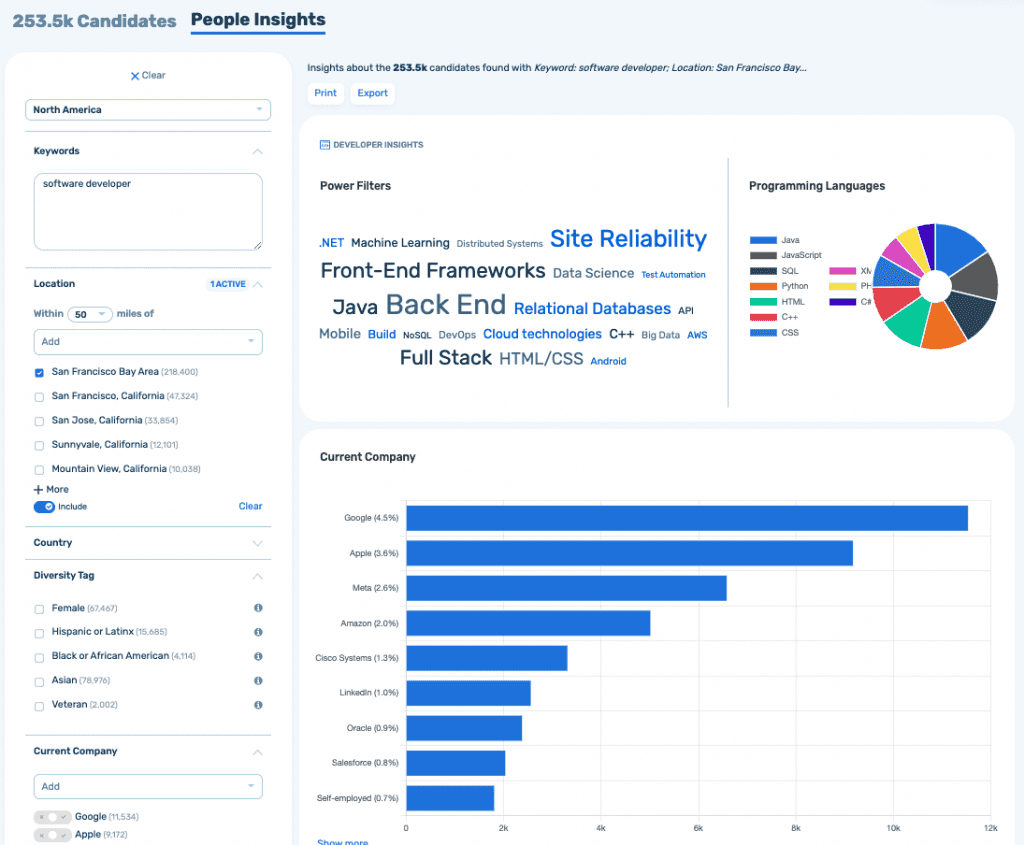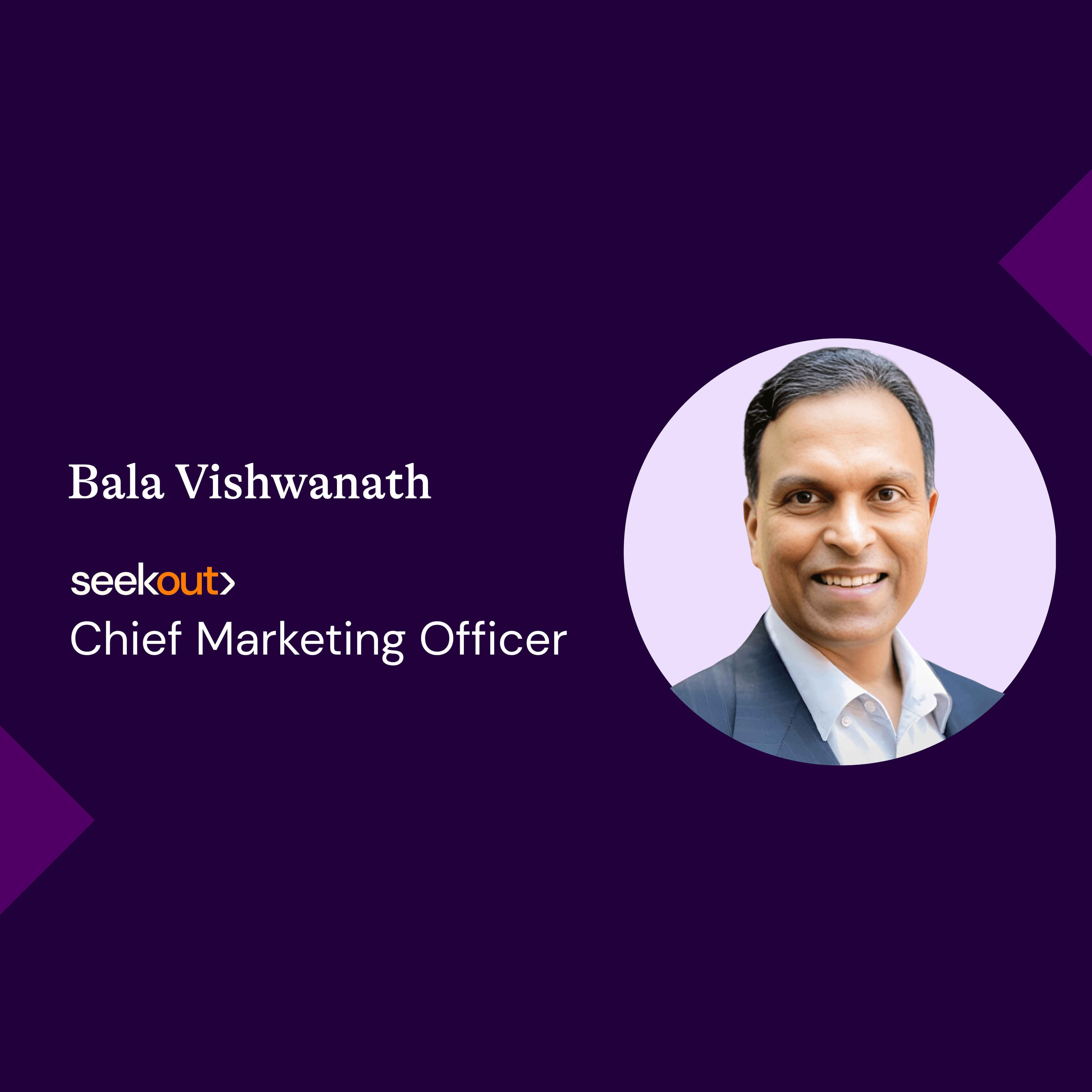
Back to blogs
Every recruiter has a set of stock questions they can fire off almost automatically when communicating with hiring managers about new positions. These questions focus on points like compensation structure, expectations, and the required skills needed to fill particular roles.
Surface-level questions play an important role in the hiring process. After all, it’s important to get the facts straight before you start recruiting. However, they’ll only get you so far. Surface-level questions typically produce shallow results—leading to mediocre hires, and devaluing your position within the company as a trusted hiring authority.
In today’s ultra-competitive job market, recruiters face a serious challenge: They need to ensure they have a system and strategy in place that allows them to quickly and efficiently vet candidates to land top talent. Otherwise, their organizations may lose ground to competitors who are better positioned to land these attractive candidates.
So, what’s the fastest way to become a better recruiter? It starts with embracing an authoritative attitude—and transforming into a talent advisor.
Becoming a talent advisor
The first step to becoming a talent advisor is to stop acting like a run-of-the-mill recruiter. Instead, you need to start acting like a talent advisor. In other words, you want your company to see you as the go-to person for hiring advice—not just someone who fills positions.
In short, transitioning into a talent advisor starts with educating yourself about the latest trends facing recruiters, building out your personal network, and becoming highly selective about who you pass along to hiring managers for interviews.

This step is important. Once you start acting like a talent advisor, it fundamentally changes the way you interact with hiring managers. You’ll gain the confidence that’s needed to push back when necessary and challenge people to carefully consider the hiring decisions they’re making—leading to stronger hires that more accurately fill the company's needs.
Thinking like a detective
The single most effective thing to do when meeting with a hiring manager is to ask the right questions—questions that respect the hiring manager’s time and lead to a deeper mutual understanding of their overall priorities.

With that in mind, let’s take a look at some recruiting questions that will help you have more informative meetings with hiring managers.
1. Would you consider hiring a remote worker?
In light of recent challenges, much of the world is working remotely. Companies that are hiring right now and so hiring managers need to consider their long-term goals—and whether they’re open to taking on full-time remote hires for long-term positions.
Asking a manager if they’re open to teleworking accomplishes two things. First, it gives you the opportunity to expand your talent search to a global audience—leading to more exciting and better-qualified candidates. At the same time, it normalizes the idea of remote work as a long-term hiring solution for the company, making it easier for hiring managers to justify embracing it.
As an added bonus, remote work meets candidate expectations—increasing the chances top talent ultimately decides to sign on with you.
2. Do you care about formal education?
For many highly technical professionals these days, education is irrelevant. It’s all about having experience, a deep understanding of the subject matter at hand, and the skills needed to do the job well. One person who thinks this way is Elon Musk—someone who knows a thing or two about hiring. “A PhD is definitely not required,” Musk recently stated on Twitter, referring to his hiring policies at Tesla’s artificial intelligence department. “I don’t care if you even graduated high school.”
It’s easy to draw your own conclusions when hiring and dismiss candidates based on accepted norms like basic education requirements. By communicating with hiring managers and asking about their preferences, you may find that you can circumvent traditional barriers—introducing the company to a more diverse selection of candidates.
3. How can we align our diversity hiring goals?
Businesses have a long way to go in the fight for workplace diversity and equality. According to one study, 80 percent of tech employees said they believe diversity, equity, and inclusion (DE&I) are important for their company. Yet, only 64 percent said they have DE&I hiring initiatives in place. What’s more, just 29 percent of tech industry professionals are women—and just 20 percent fill tech leadership roles.
Come to the table with a well-developed diversity hiring plan that outlines the company’s racial and gender needs. Then, talk with the hiring manager about how you can align your goals to improve inclusivity.
4. Is this a short-term or long-term position?
It’s worth asking managers to consider whether the position they are looking to fill is one they envision will last for a long time—or whether it’s more of a short-term project.
Hiring managers typically want to hire people who are in it for the long haul—mainly due to the high cost and hassle of dealing with high turnover. Yet they often fail to consider the true nature of certain positions.
As a talent advisor, that’s your job. By bringing temporary project managers or 1099 contractors on board when the situation warrants instead of hiring full-time workers, you may be able to avoid going through lengthy and expensive recruiting experiences.
5. Speed, quality, or cost?
According to consultant and hiring expert John Vlastelica, recruiters need to educate hiring managers about what’s realistic during the hiring process.
Vlastelica’s system, the “Vlastelica Triangle,” demonstrates how there are only three variables involved during hiring—speed (time to fill), quality (candidate match), and cost (salary or budget). Vlastelica recommends outlining these three variables and explaining that it’s only possible to fulfill two of them. In other words, if you want to find the perfect candidate that aligns with your budget, it will take time. If you want to find someone quickly and stay under budget, it will require sacrificing quality. And if you aim for speed and quality, you can expect to pay more.
Leveraging SeekOut Talent Analytics
After your interview is over, the real work begins. Now, you have to go and source candidates under a deadline—something that can be easier said than done, depending on the criteria of your search.
After all, not all managers are easy to work with. Many may not be open to ideas like Vlastelica’s Triangle. Expect to walk away from certain meetings scratching your head in disbelief.
For this reason, it helps to have access to cutting-edge tools that will grant you deep visibility into global talent pools while providing hard data on candidates. SeekOut is precisely that tool.
An AI-powered sourcing platform, SeekOut offers a variety of highly advanced talent discovery solutions. Talent Analytics, for example, is a comprehensive search function that provides instantaneous insights like the top cities and companies where key talent resides, the size of a specific talent pool based on specific hiring requirements, and even the backgrounds of candidates you have successfully hired in the past.

See a demo of SeekOut today to learn more.
See us in action
Learn how SeekOut unifies people data to help organizations reach their talent goals
Request a demo




